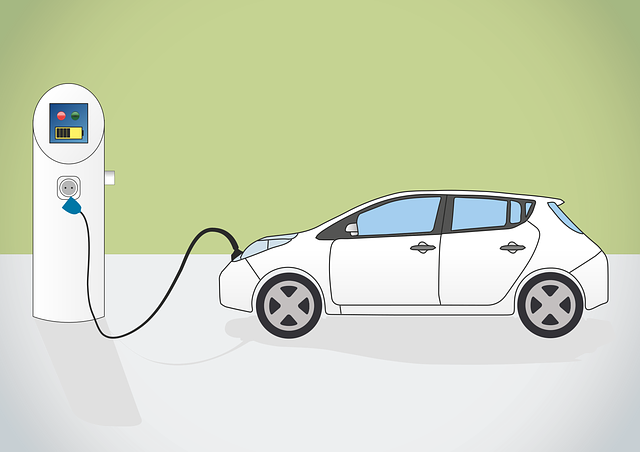Selecting the appropriate car battery is essential for maintaining smooth vehicle operation. Understanding key aspects like chemical power generation, cell configuration, and maintenance practices extends its lifespan. Consider factors such as cold cranking amps (CCA), amp hours (Ah), voltage requirements, driving habits, and climate conditions. Choose from options like lead-acid or lithium-ion batteries, each with unique advantages and drawbacks. Regular testing and maintenance, including corrosion prevention and leak checks, are vital. Address common issues like starting problems through troubleshooting, and explore eco-friendly alternatives for longer lifespans. For expert advice, align your needs with professionals specializing in 'select car batteries' to ensure informed decisions tailored to your vehicle's power source requirements.
“Unleash your vehicle’s power with expert guidance on car batteries! This comprehensive guide, ‘Car Battery Experts: Navigating Your Options,’ equips you to make informed decisions. From understanding basic battery function to selecting the perfect fit for your needs, we cover it all. Learn about lead-acid vs lithium-ion technologies and master testing, maintenance, and troubleshooting. Discover tips for choosing a reliable car battery expert tailored to your region. Optimize your vehicle’s performance by knowing when and how to ‘Select Car Batteries’ wisely.”
- Understanding Car Battery Basics: A Comprehensive Guide
- Factors to Consider When Selecting a Car Battery
- Types of Car Batteries: Lead-Acid vs Lithium-Ion
- How to Test and Maintain Your Car Battery
- Common Car Battery Issues and Troubleshooting Tips
- Choosing the Right Car Battery Expert for Your Needs
Understanding Car Battery Basics: A Comprehensive Guide

Understanding Car Battery Basics is essential when selecting the right one for your vehicle. Car batteries power critical systems, so it’s crucial to know their fundamentals. A lead-acid battery, the most common type, stores energy by using a chemical reaction to convert it into electrical energy. It consists of cells connected in series to reach the required voltage and capacity. When selecting a car battery, consider factors like cold cranking amps (CCAs), which measure its ability to start your engine in cold temperatures, and amp hours (Ah), indicating how long it can deliver power at a certain rate.
Choosing the right car battery involves understanding your driving needs. All-weather batteries are designed for extreme conditions, while others cater to specific vehicle types or performance requirements. Regular maintenance, including checking for leaks and smells indicative of corrosion or damage, is vital to prolonging battery life. Knowing how to test a car battery is also valuable; basic checks can reveal issues before they leave you stranded on the side of the road.
Factors to Consider When Selecting a Car Battery

When selecting a car battery, several key factors come into play to ensure you make an informed choice. First and foremost, consider the voltage of the battery, which should match your vehicle’s electrical system requirements precisely. Different cars have varying voltage needs, typically 12 volts, so checking your owner’s manual is essential. Additionally, assess your driving habits and climate conditions; heavy usage, extreme temperatures, or frequent long-distance trips may require a higher ampere-hour (Ah) capacity battery to meet power demands consistently.
Another important consideration is the distinction between new and used car batteries. New batteries come with manufacturer warranties, offering peace of mind and guaranteed performance. However, used batteries can be a cost-effective option if sourced from reputable dealers with detailed maintenance records. Moreover, exploring car battery recycling programs is an eco-friendly choice that contributes to sustainable practices, ensuring proper disposal and potential discounts.
Types of Car Batteries: Lead-Acid vs Lithium-Ion

When it comes to selecting the right car batteries, understanding the key differences between types is essential. Two prominent categories on the market are lead-acid and lithium-ion batteries. Lead-acid batteries have been the traditional choice for many years due to their affordability and widespread availability. They are reliable and can withstand various driving conditions, making them a popular pick among many vehicle owners. However, these batteries do have drawbacks, such as being heavier, requiring more maintenance, and having a shorter lifespan compared to their modern counterparts.
On the other hand, lithium-ion batteries have gained popularity for their lightweight design, superior energy density, and longer lifespan. They offer faster charging times and are more efficient, which makes them an excellent choice for those seeking a reliable car battery replacement with minimal maintenance. While lithium-ion batteries might come at a higher initial cost, considering the long-term benefits and reduced car battery replacement cost over time, they represent a smart investment. When exploring options, checking out the best car battery brands available and comparing prices from various retailers can help you find the perfect fit for your vehicle, ensuring optimal performance without breaking the bank.
How to Test and Maintain Your Car Battery

Testing and maintaining your car battery is a crucial task for every vehicle owner. It’s recommended to check the battery at least once a year to ensure it’s in optimal condition. Start by examining the battery terminals for any signs of corrosion or damage. Use a voltage tester or multimeter to measure the battery voltage; a fully charged 12-volt battery should read around 12.6 volts or higher. This simple step can help identify potential issues early on.
Regular maintenance includes keeping the battery clean and ensuring all connections are secure. In off-road vehicles or those with prolonged periods of inactivity, consider using a battery tender or maintainer to keep the battery charged. Additionally, if you’re an enthusiast who frequently modifies your car, investing in a high-quality car battery testing equipment can be beneficial. These tools provide accurate readings and help you select the right replacement batteries, such as robust off-road car batteries, equipped to handle demanding conditions. Remember, proper maintenance prevents unexpected failures and extends the lifespan of your vehicle’s power source.
Common Car Battery Issues and Troubleshooting Tips

Car batteries are a vital component that keeps your vehicle’s electrical system running smoothly. However, they can present several common issues that drivers often encounter. One of the most frequent problems is a failing battery that struggles to start the engine, which could be due to corrosion on the terminals or an undercharged state. Other symptoms include dim lighting when turning on accessories and an inexplicable loss of power.
When faced with these challenges, troubleshooting tips can help identify the root cause. Checking the battery’s connection is a good starting point; ensure the cables are tightly secured and free from any debris or corrosion. Additionally, testing the battery’s voltage with a multimeter can reveal if it needs recharging or replacing. For eco-conscious drivers, considering hybrid car battery types or even solar-powered car batteries could be a sustainable solution, offering longer lifespans compared to conventional options while reducing environmental impact. Selecting the right car battery is essential, whether you opt for long-lasting models known for their durability or explore innovative alternatives like hybrid and solar-powered varieties.
Choosing the Right Car Battery Expert for Your Needs

When selecting a car battery expert, understanding your specific needs is paramount. Different scenarios require distinct solutions; for instance, if you’re dealing with persistent auto battery leaks and smells, seek specialists who can offer expertise in safe recharging techniques. Conversely, those looking to invest in all-weather car batteries need experts capable of guiding them through the diverse options available to ensure optimal performance across varying climates.
The right expert will provide tailored advice based on your vehicle’s make, model, and intended use. They should be adept at assessing your requirements, whether it’s routine battery maintenance or addressing complex issues like alternator problems or battery corrosion. Remember, a good car battery expert doesn’t just sell; they educate and empower you to make informed decisions about your vehicle’s power source.
When choosing a car battery, understanding your vehicle’s needs and considering various factors is key. With options like lead-acid and lithium-ion batteries available, informed decisions are essential. Regular testing, maintenance, and addressing common issues can extend your battery’s lifespan. For specialized guidance tailored to your unique requirements, consult a seasoned car battery expert who can assist in selecting the perfect battery and ensure optimal performance. Remember, the right choice can make a significant difference in your driving experience.
